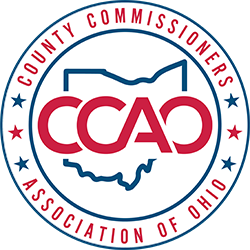Details
February 24 - 26, 2025
New Member Training
Columbus
Full Registration Early Bird Pricing: $290 After 2/8/2025: $345
One day only: $175 After 2/8/2025: $225
Training topics to include:
- County Employment Basics
- County Government Functions
- County Budgeting Basics
- Conducting Public Meetings
- And more, including a chance to visit with legislators and visit your CCAO office
RESERVATIONS: To secure the discounted rate of $158.00 before tax, reservations must be made by 2/3/2025.
Valet Parking is located beneath the hotel at 50 N. 3rd Street.
Valet Parking rate is $35 overnight or $18 daily and may be applied to your room.
Other Training Material
On January 24, CCAO held a webinar with attorney Marc Fishel on HR and public employment basics for new members. A recording of the webinar and a copy of Fishel's presentation can be found in the Videos tab of the County Government Toolkit.




